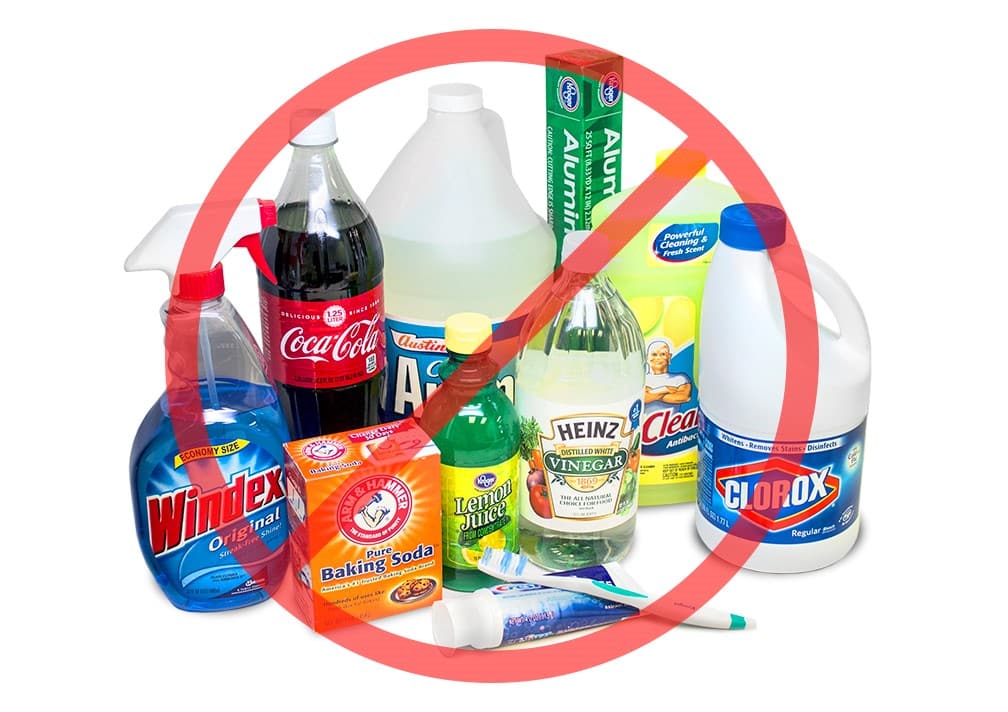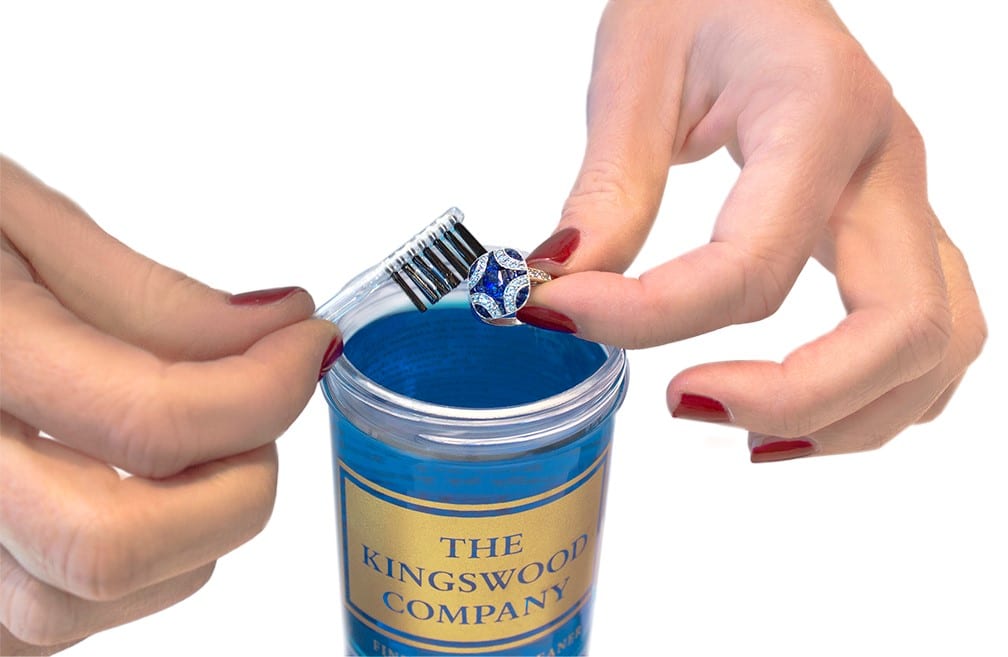By Kristie Nicolosi, The Kingswood Company
Summer days are full of fun with days at the pool, barbecues with friends, and travel to beautiful beach locations. But all this fun can lead to your jewelry losing its sparkle as it becomes dulled by the oils in your sunblock, butter dripping off that cob of corn, or caked with sand from building a prize-winning sandcastle.
So, when you want to return your jewelry to full sparkle, you may be tempted to use one of your mother’s or grandmother’s tricks of the trade. But these “old wives’ tales” range from ineffective to dangerous. Here are the top eight jewelry cleaning tales to avoid.

#1 – Toothbrush and Toothpaste
They are great for your pearly whites, but not your pearls or any other type of jewelry. The abrasives in toothpaste will scratch the surface of metals and softer gemstones, while a toothbrush’s long handle places to much pressure on the piece you are cleaning.
#2 – Ammonia, Windex®, and Mr. Clean®
Ammonia, Windex, denatured alcohol, acetone and other harsh cleaning agents can dull or pit the surface of softer gemstones. While ammonia or a cleaning agent like Mr. Clean can be safe on harder gemstones in small concentrations, it is difficult to determine the correct ratio, making them a risky choice.
#3 – Hydrogen Peroxide
While many of us know hydrogen peroxide to be an effective disinfectant, it is not really designed to be a cleaner. In some cases, it can actually react with sterling silver and through a chemical reaction, harm the finish. Professional products are a much better bet.
#4 – Bleach
Bleach is not safe for cleaning jewelry, as it damages metal alloys in gold, irreparably damaging the piece. In fact, this is why it is not a good idea to wear your jewelry while swimming or in a hot tub because both bleach and chlorine are often used to clean them.
#5 – Vinegar and Lemon Juice
The old wives are big fans of vinegar and lemon juice, and they are great cleaning agents for many things. Just not for jewelry. Both are too acidic and abrasive, which is damaging to metals and softer gemstones.
#6 – Coca-Cola®
Yes, some (Do it Yourself) DIY sites suggest using Coca-Cola for cleaning jewelry, but like vinegar, the acids in Coke can damage metals and softer stones. But to cool off on a hot summer day? There’s nothing like it.
#7 – Baking Soda
Baking soda, also known as bicarbonate of soda, is another popular DIY cleaning agent. However, it is too alkaline for cleaning jewelry safely. Just leave it in your fridge to soak up unpleasant odors.
#8 – Boiling Water
Although steam is an excellent way to clean jewelry (most jewelers use a steamer), placing your jewelry in a pot of boiling water is not a good idea. Your piece will come into contact with a hot metal surface, which can weaken or misshape the metal.
While the old wives’ tales are not the way to go, you can clean your jewelry at home. Visit your jeweler for professional jewelry care products formulated especially for cleaning jewelry. Be sure to ask what formulation is best for the jewelry you need to clean. For example, you will want a gentle jewelry cleaning formulation for pearl and other delicate gemstones.
About the Author
Kristie Nicolosi is the President and CEO of The Kingswood Company, the industry’s leading manufacturer of private-label jewelry care products. Since Nicolosi’s acquisition of the business in 2005, The Kingswood Company has earned a reputation for its advanced jewelry cleaning formulas, innovative and customer-centric design skills, and never-ending commitment to customer service. The Kingswood Company have been members of the American Gem Society for more than 25 years.
